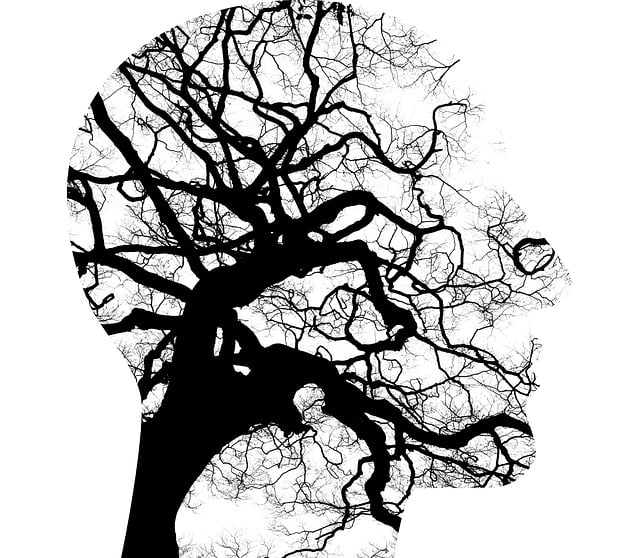Littleton International Adoptions Therapy is a leading provider of crisis intervention services, combining evidence-based practices with personalized approaches for optimal client outcomes. They focus on mental wellness development, empowering clients with coping mechanisms, self-compassion, and emotional regulation skills through tailored interventions like Mood Management, Compassion Cultivation Practices, and Confidence Boosting exercises. Their holistic care model addresses both immediate crisis needs and underlying vulnerabilities, fostering long-term mental health and well-being. By prioritizing cultural sensitivity and burnout prevention strategies, Littleton International Adoptions Therapy offers comprehensive support for diverse populations facing trauma or stress.
“In times of crisis, effective intervention can make a profound difference. This article guides you through essential strategies for managing personal and communal crises. We begin by exploring the foundational concepts of crisis intervention, delving into ‘Understanding Crisis Intervention: A Critical Overview’. Next, we highlight the unique role of Littleton International Adoptions Therapy in crisis management. Learn to identify red flags, understand direct support strategies, and discover post-crisis care techniques that foster long-term recovery.”
- Understanding Crisis Intervention: A Critical Overview
- The Role of Littleton International Adoptions Therapy in Crisis Management
- Identifying Red Flags: Recognizing Signs of Distress
- Direct Support Strategies: Instantaneous Action Plans
- Post-Crisis Care and Prevention Techniques: Long-Term Recovery
Understanding Crisis Intervention: A Critical Overview

Crisis intervention is a critical and often life-saving skill set that requires a deep understanding of human behavior and psychological responses during stressful situations. It involves rapid, focused, and effective support to individuals or communities facing severe crises, such as trauma, loss, or extreme stress. The goal is to help them stabilize, cope, and prevent further deterioration or harm.
Littleton International Adoptions Therapy, a leading organization in the field of mental health support, emphasizes that crisis intervention strategies must be tailored to individual needs, considering cultural backgrounds and unique personal experiences. This approach, combined with evidence-based practices, can significantly impact outcomes. For healthcare providers, understanding burnout prevention strategies is essential to maintaining their well-being while delivering quality care. Similarly, training in cultural competency ensures effective communication and support for a diverse range of clients, addressing not only depression prevention but also the complex needs of those from different cultural backgrounds.
The Role of Littleton International Adoptions Therapy in Crisis Management

When facing crises, individuals often require specialized support to navigate challenging situations and build resilience. Here, Littleton International Adoptions Therapy plays a pivotal role in crisis management by offering evidence-based practices tailored to foster inner strength development. This therapy recognizes that cultivating mental wellness is essential during turbulent times, providing clients with the tools needed to process emotions effectively and make meaningful changes.
Through tailored interventions, the therapy guides individuals in exploring coping mechanisms, enhancing self-compassion, and incorporating mental wellness journaling exercises. Moreover, it encourages compassion cultivation practices, enabling clients to develop a deeper sense of empathy and emotional regulation skills. By addressing these aspects holistically, Littleton International Adoptions Therapy empowers individuals to overcome crises, promoting long-term mental health and overall well-being.
Identifying Red Flags: Recognizing Signs of Distress

Identifying distressing signs early is a cornerstone of effective crisis intervention, and Littleton International Adoptions Therapy emphasizes the importance of recognizing red flags. Professionals trained in this area understand that mental health crises can manifest differently across various cultural backgrounds, necessitating a culturally sensitive approach. This involves being attuned to both overt and subtle cues of distress, which may vary based on individual experiences and community norms. For instance, someone from a culture with strong emotional restraint might express crisis indirectly through physical symptoms or changes in behavior rather than outright emotional outbursts.
By incorporating Cultural Sensitivity in Mental Healthcare Practice, therapists at Littleton International Adoptions Therapy are equipped to interpret these nuanced signals accurately. Additionally, designing Mental Health Education Programs that raise awareness about these signs and promote early intervention plays a significant role in preventing crises. Furthermore, providing access to specialized Trauma Support Services tailored to diverse populations can offer much-needed relief and help individuals navigate their distressing experiences more effectively.
Direct Support Strategies: Instantaneous Action Plans

Direct Support Strategies, such as those offered by Littleton International Adoptions Therapy, emphasize immediate action plans to address crisis situations effectively. These strategies focus on rapid intervention to stabilize individuals and prevent further deterioration. By implementing evidence-based practices, therapists guide clients towards tangible solutions tailored to their unique challenges. For instance, Mood Management techniques teach individuals coping mechanisms to regulate emotions during stressful crises.
In addition, Compassion Cultivation Practices play a pivotal role in building resilience by fostering empathy and self-compassion. This not only enhances emotional well-being but also empowers individuals to navigate crises with greater composure. Furthermore, Confidence Boosting exercises equip clients with the tools to confront challenges head-on, enabling them to regain a sense of control and make positive changes in their lives.
Post-Crisis Care and Prevention Techniques: Long-Term Recovery

Post-crisis care is a vital step towards long-term recovery and resilience. Following an intense or traumatic event, individuals often require sustained support to navigate the path to healing. This includes both practical assistance and therapeutic interventions aimed at fostering mental wellness. At Littleton International Adoptions Therapy, we emphasize the importance of holistic care, addressing not just the immediate needs but also the underlying factors contributing to vulnerability.
One effective technique is the implementation of mental wellness coaching programs tailored to individual needs. These programs provide ongoing guidance, teaching valuable coping strategies and empathy-building strategies. Additionally, encouraging individuals to engage in mental wellness journaling exercises can offer a safe space for reflection and processing emotions. Such practices contribute to building resilience and promoting positive mental health, ensuring that the benefits of crisis intervention extend far beyond the immediate aftermath.
In navigating crises, a multifaceted approach is key. From understanding crisis intervention fundamentals to utilizing specific strategies like those offered by Littleton International Adoptions Therapy, each component plays a vital role in effective management. By identifying red flags and employing direct support plans, individuals can provide immediate relief. Moreover, post-crisis care and prevention techniques foster long-term recovery. Embracing these comprehensive guidelines ensures better preparedness and supportive outcomes for all involved.














